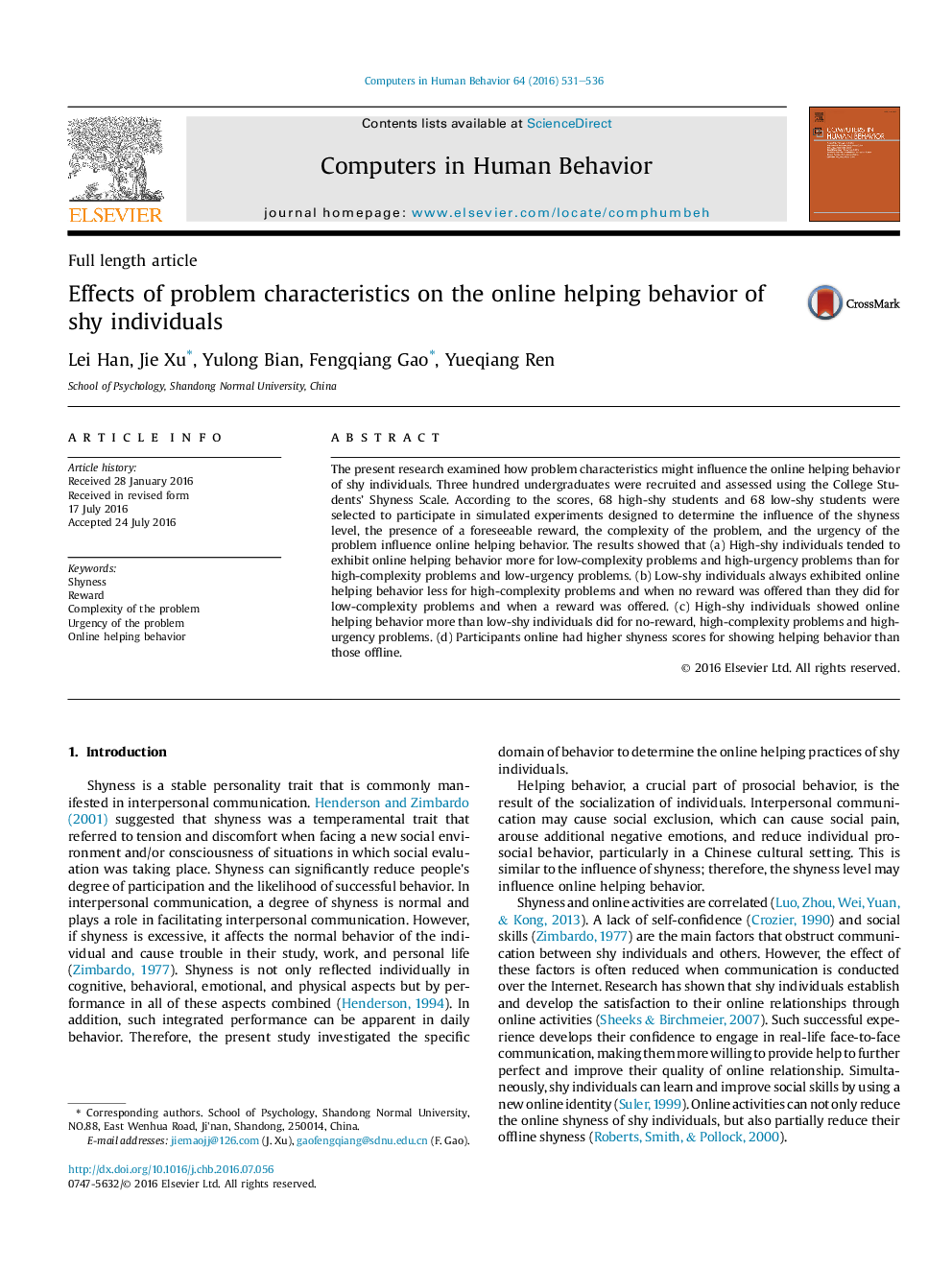| Article ID | Journal | Published Year | Pages | File Type |
|---|---|---|---|---|
| 6836621 | Computers in Human Behavior | 2016 | 6 Pages |
Abstract
The present research examined how problem characteristics might influence the online helping behavior of shy individuals. Three hundred undergraduates were recruited and assessed using the College Students' Shyness Scale. According to the scores, 68 high-shy students and 68 low-shy students were selected to participate in simulated experiments designed to determine the influence of the shyness level, the presence of a foreseeable reward, the complexity of the problem, and the urgency of the problem influence online helping behavior. The results showed that (a) High-shy individuals tended to exhibit online helping behavior more for low-complexity problems and high-urgency problems than for high-complexity problems and low-urgency problems. (b) Low-shy individuals always exhibited online helping behavior less for high-complexity problems and when no reward was offered than they did for low-complexity problems and when a reward was offered. (c) High-shy individuals showed online helping behavior more than low-shy individuals did for no-reward, high-complexity problems and high-urgency problems. (d) Participants online had higher shyness scores for showing helping behavior than those offline.
Related Topics
Physical Sciences and Engineering
Computer Science
Computer Science Applications
Authors
Lei Han, Jie Xu, Yulong Bian, Fengqiang Gao, Yueqiang Ren,
